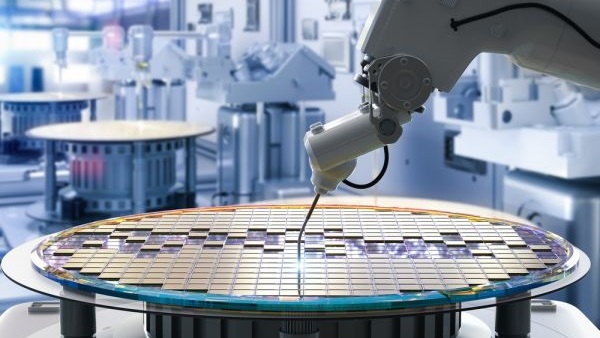U.S. Bans Future Investments in Chinese AI, Semiconductor, and Quantum Computing
Chinese AI, chip, and quantum computing entities will not get money from U.S. investors.

President Joe Biden this week signed an executive order restricting U.S. investments in Chinese tech sectors, including AI, semiconductors, and quantum computing, reports Reuters. The move aims to prevent American resources from aiding China's technological and military growth. China has expressed serious concerns and opposition to this order, stating that it disrupts economic cooperation and trade.
President Biden's order enables the U.S. Treasury secretary to limit U.S. investments in Chinese entities specifically within three sectors: artificial intelligence technologies, semiconductors, and quantum computing technologies. The restrictions mainly address private equity, venture capital, joint ventures, and greenfield investments. While the administration mentioned restrictions would concern only "narrow subsets" of these areas, precise details remain unspecified.
While AI and quantum computing are promising technologies, the main focus of the new executive order is the Chinese semiconductor industry, which includes chip developers, electronic design automation (EDA) software, makers of wafer fab tools, and chip manufacturers. In fact, EDA tools are a primary concern for the U.S. government as lately Chinese companies have increased their efforts in this segment of the semiconductor industry. Another major concern for the U.S. is China's growing prowess in making chip production tools.
The central motivation for this directive is to prevent American investors from inadvertently bolstering China's technological innovations that could enhance its military capabilities and potentially compromise U.S. national security.
Meanwhile, the new rules only pertain to future investments. Still, while current investments are not expected to be affected, there might be demands for disclosure about past transactions. Furthermore, the U.S. Treasury anticipates potential exemptions for specific deals, including those involving publicly traded instruments and certain intracompany transfers.
The directive is expected to come into effect next year after several rounds of public feedback. The initial phase will consist of a 45-day comment period.
China has voiced strong disapproval of the U.S.'s decision. The Chinese commerce ministry conveyed that such a move disrupts the regular functioning of enterprises and compromises the global economic and trade order. Additionally, the Chinese foreign ministry emphasized their discontentment with the USA's continuous imposition of investment restrictions.
Get Tom's Hardware's best news and in-depth reviews, straight to your inbox.

Anton Shilov is a contributing writer at Tom’s Hardware. Over the past couple of decades, he has covered everything from CPUs and GPUs to supercomputers and from modern process technologies and latest fab tools to high-tech industry trends.
-
bit_user ReplyThe restrictions mainly address private equity, venture capital, joint ventures, and greenfield investments.
I wonder if this will affect Intel's Innovation Lab:
https://www.tomshardware.com/news/intel-opens-chinese-chip-innovation-center-for-developing-ai-custom-chips -
gg83 Reply
Exactly my first thought after reading both articles.bit_user said:I wonder if this will affect Intel's Innovation Lab:
https://www.tomshardware.com/news/intel-opens-chinese-chip-innovation-center-for-developing-ai-custom-chips